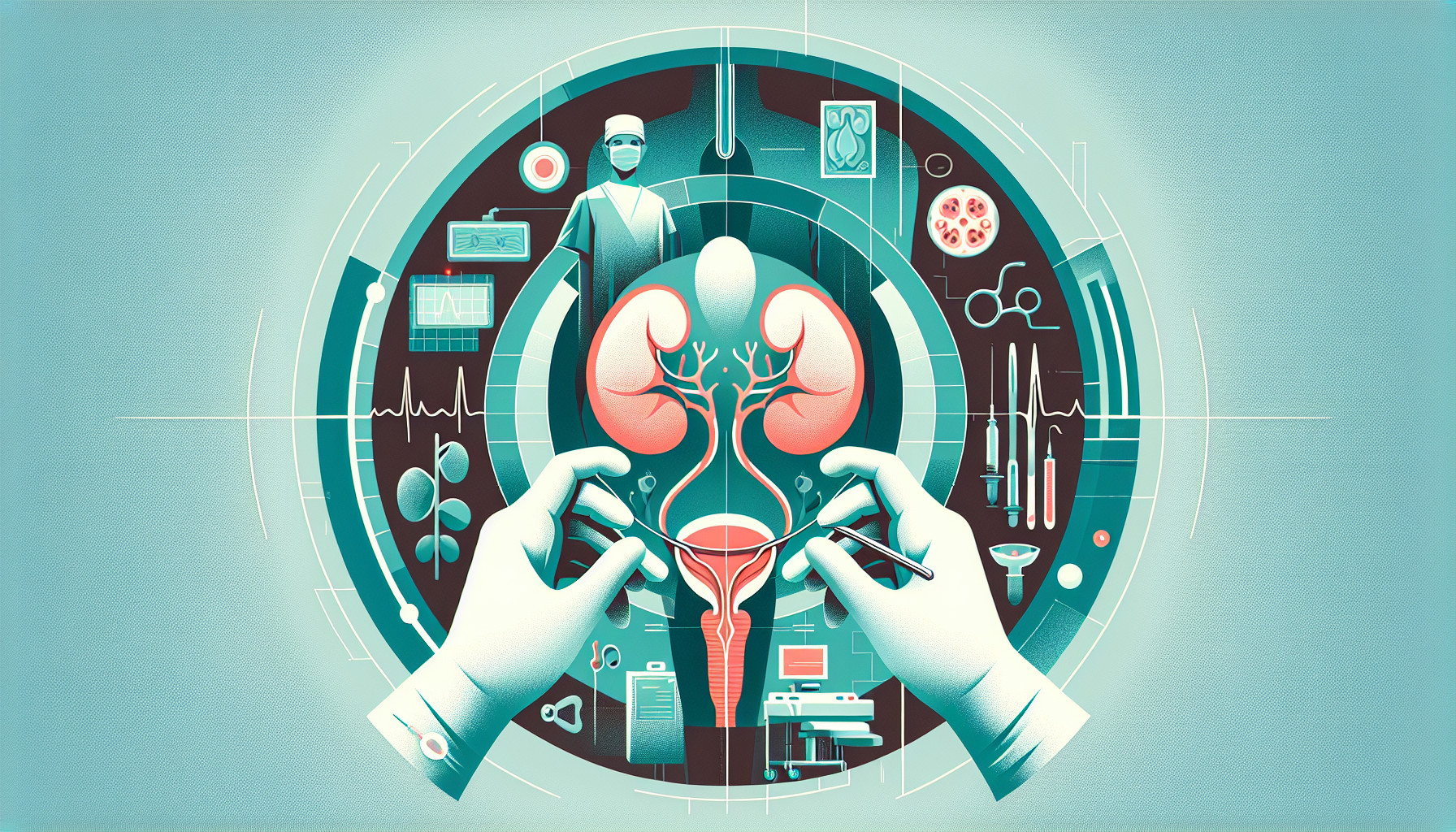Our Summary
This research aimed to understand the impact of how full the bladder is on its ability to contract and release urine in men with bladder outlet obstruction, a condition in which urine flow is blocked. The study was conducted on men who were experiencing significant urinary symptoms. The researchers found that the strength of bladder contraction changes depending on how full the bladder is. The bladder contracts most effectively when it’s about 75% full. However, when the bladder is less or more full than this, its ability to contract and release urine is reduced. This finding could help explain why some men with bladder outlet obstruction have difficulty emptying their bladder completely, leading to urine retention.
FAQs
- What was the primary goal of this research on bladder surgery?
- How does the fullness of the bladder impact its ability to contract and release urine?
- How could these findings support understanding of bladder outlet obstruction in men?
Doctor’s Tip
A helpful tip that a doctor might give to a patient undergoing bladder surgery is to make sure to follow the post-operative care instructions carefully, including drinking plenty of fluids to help flush out the bladder and prevent urinary tract infections. It’s also important to avoid lifting heavy objects or engaging in strenuous activities that could strain the bladder during the recovery period. Additionally, maintaining a healthy lifestyle with regular exercise and a balanced diet can help support the healing process and prevent future bladder issues. Lastly, don’t hesitate to reach out to your healthcare provider if you experience any unusual symptoms or complications after the surgery.
Suitable For
Patients who are typically recommended bladder surgery include those with bladder outlet obstruction, urinary retention, frequent urinary tract infections, bladder stones, bladder cancer, neurogenic bladder (bladder dysfunction due to nerve damage), interstitial cystitis (chronic bladder pain), and other bladder conditions that have not responded to conservative treatments such as medications or physical therapy.
Timeline
Before bladder surgery:
- Patient experiences symptoms of bladder outlet obstruction, such as difficulty emptying the bladder completely, frequent urination, weak urine stream, and urinary retention.
- Patient undergoes diagnostic tests, such as uroflowmetry, cystoscopy, and imaging studies, to determine the cause and severity of their bladder condition.
- Patient discusses treatment options with their healthcare provider, including medications, behavioral therapy, and surgical interventions.
- Patient decides to undergo bladder surgery as a treatment option.
After bladder surgery:
- Patient undergoes preoperative preparations, such as fasting before surgery, stopping certain medications, and receiving anesthesia.
- Patient undergoes bladder surgery, which may involve procedures such as transurethral resection of the prostate (TURP), bladder neck incision, or bladder augmentation.
- Patient experiences postoperative recovery, which may include pain management, catheterization, and monitoring for complications such as infection or bleeding.
- Patient undergoes follow-up appointments with their healthcare provider to monitor their recovery progress, address any concerns or complications, and adjust their treatment plan as needed.
- Patient may experience improvements in their urinary symptoms, such as better bladder emptying, increased urine flow, and reduced frequency of urination, as a result of the bladder surgery.
What to Ask Your Doctor
Some questions a patient should ask their doctor about bladder surgery may include:
- What type of bladder surgery do you recommend for my condition?
- What are the potential risks and complications associated with this surgery?
- How long is the recovery period after bladder surgery?
- Will I need to follow any specific post-operative care instructions?
- What are the potential long-term outcomes of bladder surgery?
- Will I need to make any lifestyle or dietary changes after the surgery?
- How will bladder surgery affect my urinary function and quality of life?
- Are there any alternative treatments to bladder surgery that I should consider?
- How experienced are you in performing this type of bladder surgery?
- Can you explain in detail how the surgery will be performed and what I can expect during the procedure?
Reference
Authors: Hermieu N, Chesnel C, Teng M, Xylinas E, Ouzaid I, Hermieu JF, Amarenco G, Hentzen C. Journal: Neurourol Urodyn. 2023 Feb;42(2):445-452. doi: 10.1002/nau.25113. Epub 2022 Dec 15. PMID: 36519669
